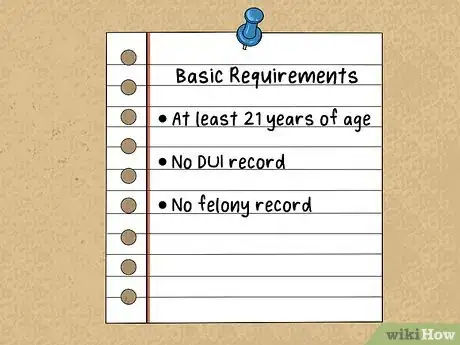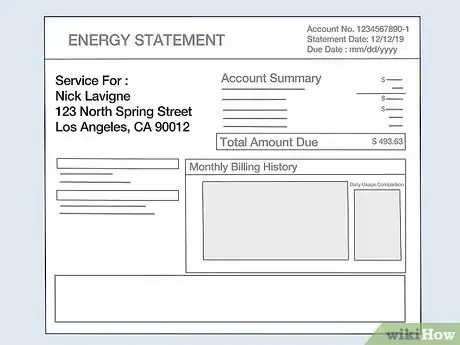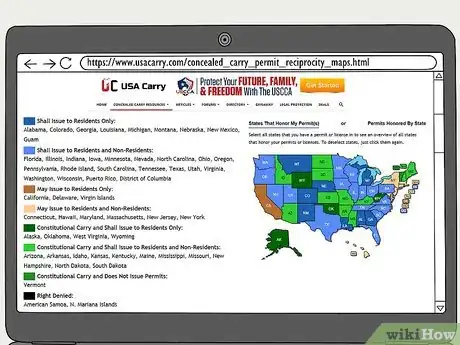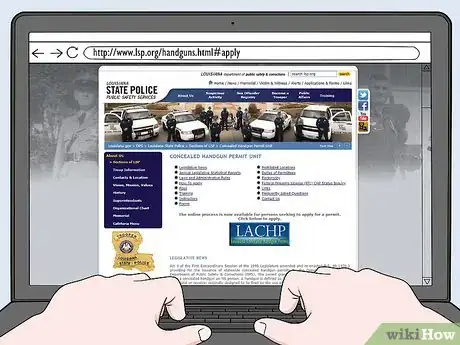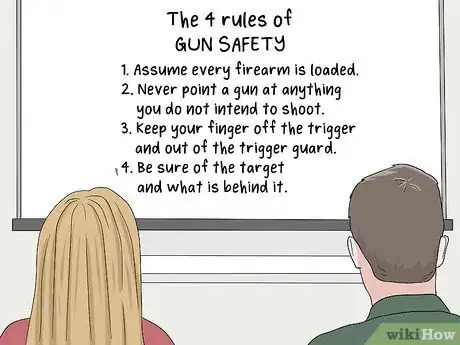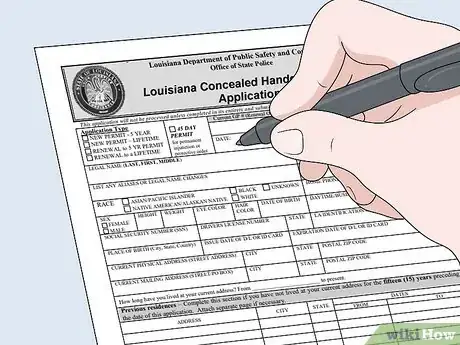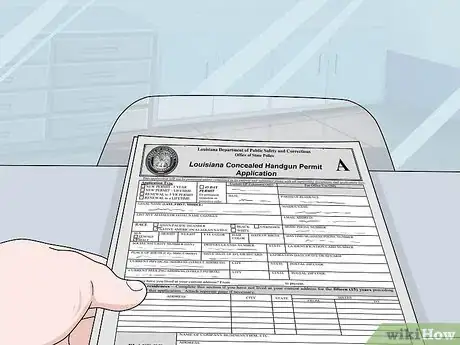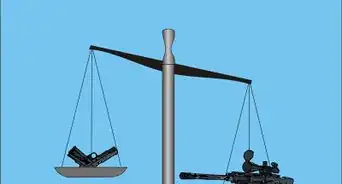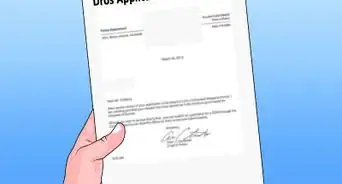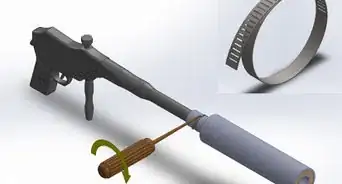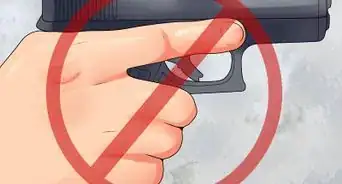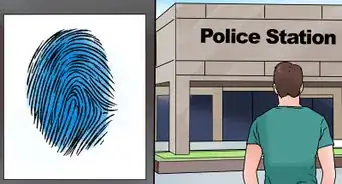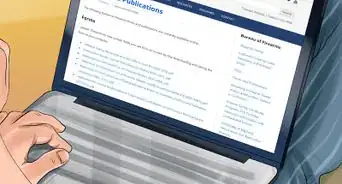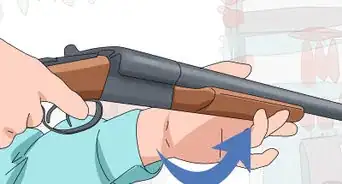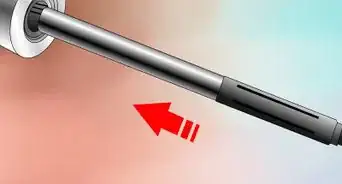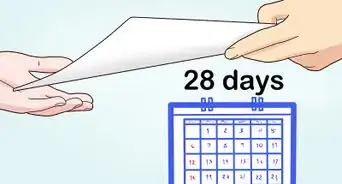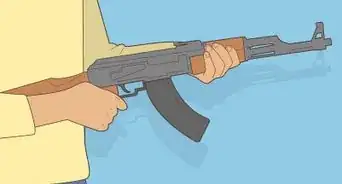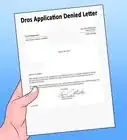This article was co-authored by Clinton M. Sandvick, JD, PhD. Clinton M. Sandvick worked as a civil litigator in California for over 7 years. He received his JD from the University of Wisconsin-Madison in 1998 and his PhD in American History from the University of Oregon in 2013.
There are 7 references cited in this article, which can be found at the bottom of the page.
This article has been viewed 163,715 times.
Whether you currently own a gun or are looking to purchase one, making sure you have the correct permits and training are a necessity. Not only will they help keep you safe, but they will also help keep those around you safe, too. If you are looking to carry a gun, but don’t want to open-carry, applying for a CCW or Concealed Carry Weapon permit is the way to go. A large number of states offer their citizens the ability to carry a concealed weapon, but obtaining a permit to do so varies from state-to-state and will require research.
Steps
Starting the Process
-
1Make sure you meet the basic requirements. Obtaining a permit to carry a concealed weapon varies from state-to-state. However, there are a few basic requirements you must meet regardless of where you live. First, you must be at least 21 years of age. Then you must have “proof of good character.” This means you haven’t been convicted of any felonies like DUIs or assault and battery.[1]
-
2Research the requirements for your state. Outside of the basic requirements, each state will require proof of residency. For example, in Ohio you have to have been a resident of the state for at least 45 days, and a resident of your home county for 30 days. You will also have to meet each state’s requirements for training and application.[2]
- Pay strict attention to the requirements as some jurisdictions may deny your application for the slightest infraction.
- You may also want to talk to people who already have a permit about their experience and where you should start.
Advertisement -
3Learn about the differences in concealed carry permit applications. If you meet the basic requirements for a concealed carry permit in your state, then you can apply for a permit. However, there are differences in the application approval process.[3]
- Shall Issue. Most states have “Shall Issue” policies, meaning that they will give a permit to you if you meet all of the requirements.
- May Issue. A handful of states have “May Issue” policies, meaning that they may deny a permit application even if you meet all of the requirements. These judgments are made on a case-by-case basis. States with a “May Issue” policy include California, Connecticut, District of Columbia, Hawaii, Delaware, Virgin Islands, Maryland, New Jersey, Massachusetts, and New York.
- Right Denied. There are couple of places in the U.S. where concealed carry is not allowed. These include American Samoa and N. Mariana Islands.
-
4Get a background check. You can do this by sending your fingerprints to the Bureau of Criminal Identification or BCI. To get fingerprinted, simply contact your local law enforcement and set up an appointment. They should be able to provide you with a fingerprinting card, but you can also print them off online. The process should only take about 10-15 minutes. Once you’ve finished, the department should be able to send your prints off to be checked. In total it should cost around $50-$60.[4]
Filling Out Your Application
-
1Learn about your state’s application process. Make sure to learn about your state’s application process to ensure that you can complete every step. The application process for a concealed carry permit may vary from state to state, so be sure to check the requirements in your state.
- For example, in Louisiana, you need to complete an application, prove that you meet all of the requirements, agree to comply with the rules and regulations for concealed carry, and pay the $25.00 application fee.[5]
-
2Take any classes, if necessary. Most states require you to take a gun safety class. This is recommended even if you do not plan to carry a weapon. Most training courses are around 8 hours and are taught by a qualified CCW instructor. You can find one through your state’s CCW website or through your local sheriff’s department.
- If you are already certified, you may be able to bypass training. However, if your certification is older than 3 years, you may have to take another class.[6]
- If you are an active or reserve member of the military, you may also be able to skip training.
-
3Fill out the appropriate paperwork. Each state will have a specific application for you to fill out. With your application you will also have to include a photocopy of your driver’s license and a color photograph of passport quality. You should also have your cleared background check, fingerprints, and firearm certification.[7]
- Keep in mind that every state may require additional or different items like proof of residency.
- The fee for obtaining a license may also vary from state to state, but expect to pay between $30-$50.
-
4Submit the proper forms and wait. It can take anywhere between 30-60 days to obtain your permit. In the meantime, do not carry a concealed weapon if it is illegal to do so without a permit in your area. Some shall issue states allow you to open-carry a weapon, but you should check your state's official website for more information before doing anything else.[8]
- Once you have your permit it should be good for 5 years.
Warnings
- Depending on the state, your personal information may be retrievable via the state's Freedom of Information Act. You may wish to check this before applying for a permit.⧼thumbs_response⧽
- Be wary of obtaining information from unofficial websites. While they may offer accurate information, many include notices that the information is subject to change. Always verify the information against the laws in your state.⧼thumbs_response⧽
References
- ↑ http://www.shouselaw.com/concealed-weapon.html
- ↑ http://www.buckeyefirearms.org/ohio-ccw-application-checklist
- ↑ http://www.usacarry.com/concealed_carry_permit_reciprocity_maps.html
- ↑ http://myfbireport.com/locations/index.php
- ↑ http://www.lsp.org/handguns.html
- ↑ http://www.buckeyefirearms.org/ohio-ccw-application-checklist
- ↑ https://concealedcarry.doj.wi.gov/ccwonline/steps/startApplication.html;jsessionid=6C1C358C5176B1E4FE884D09F477830B.ccwonline1#!
- ↑ http://www.dol.wa.gov/business/firearms/faconcealfaq.html
About This Article
To apply for a concealed carry permit, you need to be at least 21 years old and have no felony convictions. Each state has different requirements, so check your state’s specific requirements before you apply. To start the application process, you need to complete an application form and pay an application fee. From there, you’ll need to take the required classes to be certified to carry a concealed firearm. After you get your certification, you can fill out the paperwork required by your state, submit it to the permit office, and wait to receive your permit. For information about how to get a background check from our Legal co-author, keep reading!
